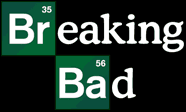 As anyone who's ever worked at a TV network knows, sometimes the only thing worse than a flop is having a hit on your air. AMC is learning this lesson the hard way: it's endured messy, extended renewal talks for Mad Men and the loss of The Walking Dead's showrunner over the past year (not to mention the flop of Rubicon and disappointment of The Killing, both much more public than they would have been because of the network they're on). Now it's Breaking Bad's turn.
As anyone who's ever worked at a TV network knows, sometimes the only thing worse than a flop is having a hit on your air. AMC is learning this lesson the hard way: it's endured messy, extended renewal talks for Mad Men and the loss of The Walking Dead's showrunner over the past year (not to mention the flop of Rubicon and disappointment of The Killing, both much more public than they would have been because of the network they're on). Now it's Breaking Bad's turn.According to the LA Times, AMC's initial 4-year deal for the series has run out, and renewal talks for a 5th season (which for creative reasons could be its finale) between the network and Sony Television, which produces the show, are none too pleasant. (Broadcast network licenses routinely run longer than 4 years, but presumably the short term here was a quid pro quo for other provisions--like a low license fee--that Sony was willing to accept.) The story--which, in the way of these things, could well be coming from sources at Sony or representatives of talent from the show--is that AMC wanted to cut the season down from its usual 13 episodes to 6-8, and the producers and studio not only said no, they've pitched the series to other cable networks.
The only part that's surprising in all this is if it turns out to be true that AMC wanted to cut the number of episodes for one of their signature hits. Combined with the word that budget cuts contributed to Frank Darabont's departure from Walking Dead, that would suggest the network is facing a serious financial squeeze. AMC is in an odd position, because with the exception of Walking Dead, none of their "hits" are watched by all that many people (Breaking Bad had a 0.9 rating in 18-49s last week, just 2/3 of Burn Notice's audience), meaning that the advertising revenue the network gets is limited. (They're probably losing money on their crown jewel, Mad Men.) But these shows are of crucial importance to AMC, because the other source of revenue for cable networks is from their share of monthly cable fees, and without their original programming, AMC is just another network showing Donnie Brasco--which doesn't justify much of a fee. So acclaimed original programming is a business AMC desperately needs to be in, but they have to garner those increased subscription fees while not spending all that extra revenue (or more) on the costs of the shows themselves.
In the end, the odds are better than 90% that a deal will be worked out, and no one will have to reprogram their DVRs for Breaking Bad; as the NFL and the national debt ceiling have recently reminded us, these things usually get solved just at the moment they have to be. Maybe the show will have 10 or 11 episodes instead of 13; maybe the episodic budget will be reduced, or each episode will have extra commercial time; maybe AMC will get a share of Sony's homevideo and international revenues from the series; maybe there will quietly be a seemingly unrelated deal between Sony and AMC that's more in the network's favor. The poker hands change, but the game stays the same. Hey AMC: welcome to being a big-time network!






0 comments:
Post a Comment